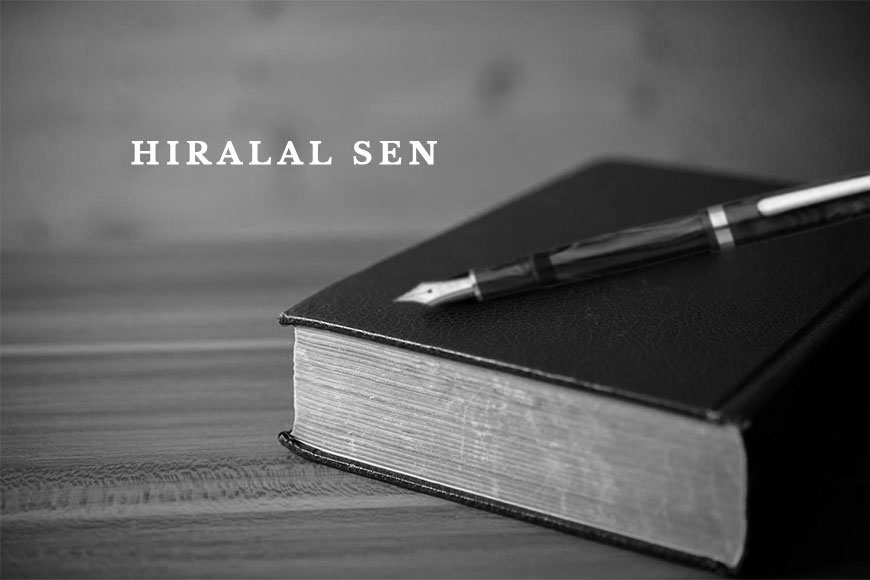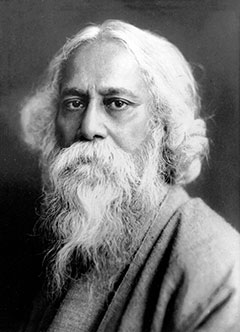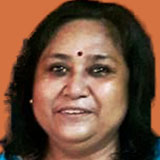Protecting poet Hiralal Sen – British conspiracy to bring sedition charges against Tagore

December 4, 1908. A trial was in progress at the Khulna District Court against a poet charged with sedition. Rabindranath Tagore was summoned to appear before the court and record his statement against the defendant. But the ludicrous fact was the accused poet had dedicated his book to none other than Tagore! Sir Andrew Fraser, the then-Lieutenant Governor General of Bengal was determined to harass Tagore and plotted to embroil him in the criminal case. However, the government pleader informed him there was absolutely no way to frame Tagore in this lawsuit. But undeterred by this setback, Fraser decided on another move to embroil Tagore. He was summoned to the court to record his statement as government witness and confirm the allegations brought against the accused poet.
Hiralal Sen, a teacher at Senhati National School, Khulna (at present Senhati village Bangladesh). In 1908, his book of poems, Hoonkar was published. This was a volatile period as the sentiments of the people of Bengal were hurt following the Partition of Bengal in 1905. It led to strong opposition and Indians started a movement against the British Government.
 Tagore lived in Calcutta and it was an arduous journey to Khulna. On the day he was scheduled to appear in the court, he reached well behind the scheduled time. The judge was all set to send him a summon for disrespecting the court order. However, that could be averted. Tagore was asked to take his position on the stand and face the jury. A veteran lawyer, Kalipada Roy, who was present at the trial later said, Tagore firmly said, there is nothing unusual or unnatural for an emotionally charged youth to express his dreams and aspirations about his country or his people in his poems or lyrics. He also added that he was not a person from the legal arena so he was not aware how much one could write candidly without stoking charges of sedition that would warrant legal course of action.
Tagore lived in Calcutta and it was an arduous journey to Khulna. On the day he was scheduled to appear in the court, he reached well behind the scheduled time. The judge was all set to send him a summon for disrespecting the court order. However, that could be averted. Tagore was asked to take his position on the stand and face the jury. A veteran lawyer, Kalipada Roy, who was present at the trial later said, Tagore firmly said, there is nothing unusual or unnatural for an emotionally charged youth to express his dreams and aspirations about his country or his people in his poems or lyrics. He also added that he was not a person from the legal arena so he was not aware how much one could write candidly without stoking charges of sedition that would warrant legal course of action.
At the end of the trial the accused poet was found guilty and the judge ordered jail term for him. The poet was Hiralal Sen, a teacher at Senhati National School, Khulna (at present Senhati village Bangladesh). In 1908, his book of poems, Hoonkar was published. This was a volatile period as the sentiments of the people of Bengal were hurt following the Partition of Bengal in 1905. It led to strong opposition and Indians started a movement against the British Government. The Swadeshi Movement gained momentum and people started boycotting British goods. Rabindranath Tagore himself publicly criticized the British government’s move to divide Bengal and was instrumental in inspiring the masses to release their angst and voice their opposition to the politically motivated move.
Hiralal Sen was sentenced to imprisonment in 1908. He was released in 1910 and Tagore contacted him soon after and brought him to Santiniketan where he had started his school. Many teachers who joined the institution at that time were suspects in the eyes of the British police and believed to be involved in anti-national activities. They included Kalimohan Ghosh and Nagendranath Aich.
The British government did not take any legal action against Tagore but his name figured in the suspects’ list maintained by the police at Lalbazar. In the register, his name was mentioned as Robi Tagore, IB Suspect No. 11. According to heresy, every time Rabindranath stepped out of his Jorasanko residence, secret agents would inform Lalbazar headquarters and follow his movements. The police became suspicious about Tagore’s involvement with the Indian extremists who imported arms and ammunition from abroad. He did come across many leaders and workers who participated in the nationalist movement but he was never involved in armed movement. The police also suspected that Tagore met Indian revolutionary Rashbehari Bose during his trip to Japan.
Hiralal Sen was sentenced to imprisonment in 1908. He was released in 1910 and Tagore contacted him soon after and brought him to Santiniketan where he had started his school. Many teachers who joined the institution at that time were suspects in the eyes of the British police and believed to be involved in anti-national activities. They included Kalimohan Ghosh and Nagendranath Aich. Hiralal Sen joining the group again raised the eyebrows of the British. Was Tagore involved in sedition activities behind the façade of a school, the police wondered. However, there was no legal path to close down the school. So, the government instructed all public employees to stay away from all activities undertaken at Santiniketan and barred them from sending their children to the school set up by Tagore.
After Sen joined Tagore at Santiniketan, the police continuously harassed Tagore. An exasperated Tagore finally recalled Sen and engaged him in his zamindari office. Over the years, the two developed a very beautiful bonding. Despite all their efforts, the British government found nothing unlawful against him that would enable it to take action against Tagore. His books were never banned officially but author Bijoylal Chattopadhyay’s book, Bidrohi Rabindranath (Rebel Rabindranath), published in 1932, was banned. Tagore’s Russia-r Chithi (Letters from Russia) was surveyed with hawks eyes by the British Intelligence. This book was not banned but a critical piece, Sarboharar Drishtitey Russia-r Chithi (‘Letters from Russia’ from the perspective of a proletariat) that was published in 1936, was confiscated and banned.










